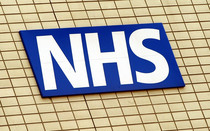 A common response to the impending age of austerity in the NHS is to suggest that charges are introduced for visits to the GP. The line of reasoning adopted by MEPs and think-tanks alike is that a means-tested £20 charge will “encourage healthy, wealthier people to use the NHS only when absolutely necessary.”
A common response to the impending age of austerity in the NHS is to suggest that charges are introduced for visits to the GP. The line of reasoning adopted by MEPs and think-tanks alike is that a means-tested £20 charge will “encourage healthy, wealthier people to use the NHS only when absolutely necessary.”
Leaving aside the fact that such a system would cost more to administer than it would generate in revenue, a more interesting question is whether the converse holds true? That is, whether unhealthy and poor people aren’t using GP services when they should be. The consequence of this is more profound because poor and unhealthy people tend to cost the NHS much more than few unnecessary appointments booked by the worried well.
Looking at a composite measure of the number of GPs per population, weighted for age and need, compared to how deprived that population is, we see that there is a shortage of doctors in the most deprived areas in England. Half-empty GP surgeries in wealthy areas might be a measure of success for some policies, but they won’t help address inequalities in GP access.
GPs are well-educated, relatively wealthy and mobile citizens and tend to want to live and work in affluent areas. So a policy which merely introduces a means test for GP access in affluent areas will do nothing to address the bigger issue, which is attracting more GPs into deprived areas where the burden of disease, and cost, is greatest. This task was once the preserve of the now defunct local Medical Practice Committees.
On the whole, GPs are good value for money. Roughly speaking, GPs see 80 percent of all patient consultations for about 7 percent of the NHS budget (excluding prescriptions). So a relatively cheap and simple solution to improving the overall health of the population, and particularly that in deprived areas, lies in providing more, and improved, primary care services.
Huge funding increases in recent years means that the NHS now employs more doctors, nurses and bureaucrats than ever before. Cutting bureaucracy should be a priority, of course, but delivering effective healthcare to a population also requires that we encourage enough GPs to set up where they are needed most.
Lord Darzi has attempted to remedy the inequalities of access to healthcare with the introduction of polyclinics. The idea is a sensible one, but the implementation flawed and top-down. Some patients in deprived areas are being given new polyclinics, but as with existing GP surgeries, the location is where the Primary Care Trust (PCT) dictates. In many case, if you don’t have a car a polyclinic placed by the PCT is just as inaccessible as a half-empty GP surgery in an affluent area.
For all these reasons, Policy Exchange is currently undertaking a research project on extending patient choice into primary care. Watch this space.
Henry Featherstone is Head of the Health and Social Care Unit at Policy Exhcange.






Comments